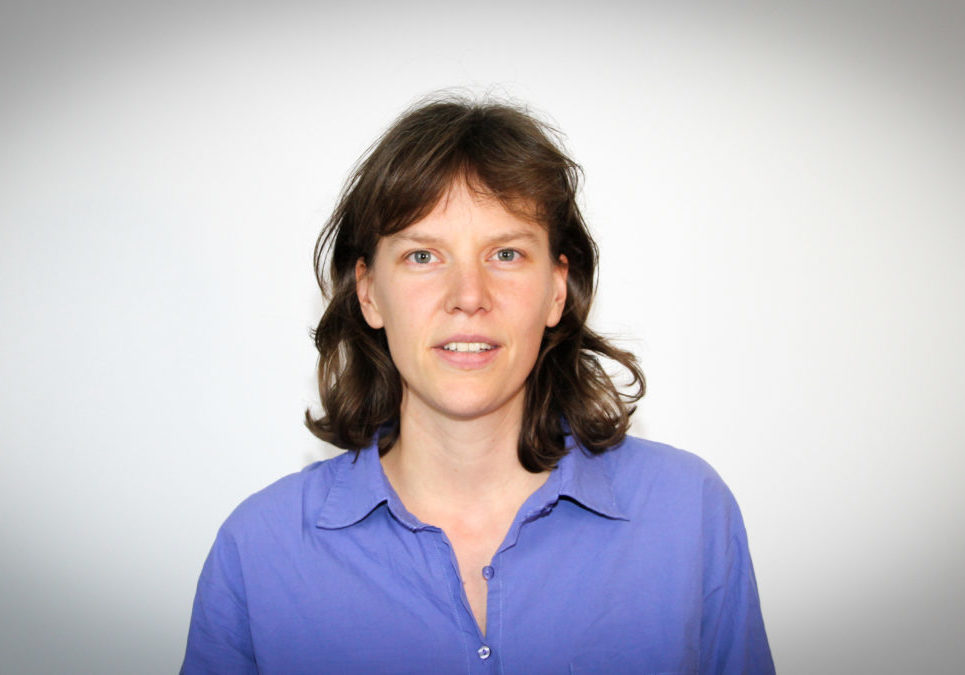Freia Kuper
Freia Kuper was an associated researcher in the research programme “Knowledge and Society”. Before she was a part of the research project IMPaQT on quality assessment of third-mission-activities of the social sciences and humanities. As a freelance researcher she carried out an interview study with the Public Interest AI research group on the use of artificial intelligence for the public interest. At the Museum for Natural History Berlin she worked on user imaginaries at play in the digitization of the museum collections. Her overall research interest concerns digital infrastructures as spaces of knowledge production and dissemination.
Freia studied Molecular Medicine (B.Sc.) and Universität Ulm and Istanbul Üniversitesi and Science Studies (M.A.) at Humboldt Universität zu Berlin. She finished her master program with an ethnographic study on the maintenance of an immunological database in San Diego, USA. Besides, she is the editor of the “hinterlands magazine”, a magazine showcasing diverse narratives from Europe’s rural regions.
Journal articles and conference proceedings
Züger, T., Kuper, F., Fassbender, J., Katzy-Reinshagen, A., Kühnlein, I. (2023). Handling the hype: Implications of AI hype for public interest tech projects. TATuP – Journal for Technology Assessment in Theory and Practice, 32(3), 34-40. DOI: https://doi.org/10.14512/tatup.32.3.34 Publication details
Fecher, B., Kuper, F., Fähnrich, B., Schmid-Petri, H., Schildhauer, T., Weingart, P., & Wormer, H. (2022). Balancing interests between freedom and censorship: Organizational strategies for quality assurance in science communication. Science and Public Policy, scac043, 1-14. DOI: 10.1093/scipol/scac043 Publication details
Fecher,B., Kuper, F., Sokolovska, N., Fenton, A., Hornbostel, S., & Wagner, G.G. (2021). Understanding the Societal Impact of the Social Sciences and Humanities: Remarks on Roles, Challenges, and Expectations. Frontiers in Research Metrics and Analytics, 6. DOI: 10.3389/frma.2021.696804 Publication details
Working paper
Broer, I., Ibert, O., Kuckeland, N., Kuper, F., & Müller, F. C. (2024). Lost (and Found) in Translation: Thesen zur Übersetzungsleistung von Beratungsdokumenten an der Schnittstelle von Wissenschaft und Politik. LeibnizInstitut für Medienforschung | Hans-Bredow-Institut (HBI); Leibniz-Institut für Raumbezogene Sozialforschung (IRS). DOI: https://doi.org/10.21241/ssoar.94211 Publication details
Züger, T., Faßbender, J., Kuper, F., Nenno, S., Katzy-Reinshagen, A., & Kühnlein, I. (2022). Civic Coding: Grundlagen und empirische Einblicke zur Unterstützung gemeinwohlorientierter KI. Civic Coding Initiative. Publication details
Other publications
Kuper, F. & Henkes, L. (2024). Debunking Science Myths: Preconceptions about science put to the test. Digital Society Blog. Publication details
Laufer, M., Kuper, F., Mende, M. A., Schäfer, L. O., Tschache T., & Deacon, B. (2023). Organizing Digital Change at the University. The Practitioners’ Field Guide for Implementing Educational Technology. HIIG Impact Publication Series. Publication details
Züger, T., Katzy-Reinshagen, A., Fassbender, J., Kuper, F., & Kühnlein, I. (2022). Civic Coding. Empirische Erkenntnisse und Empfehlungen zur Unterstützung gemeinwohlorientierter KI. HIIG Impact Publication Series. Publication details
Fecher, B., Sokolovska, N., Kuper, F., & Fenton, A. (2021). Impact der Gesellschaftswissenschaften – (Wie) Kann man ihn messen? Wissenschaftskommunikation.de. Publication details
Timm, M., Sokolovska, N., Kuper, F., Mosene, K. (2021). Fehlende Digitalpolitik bei den Triellen der Kanzlerkandidat:innen – Eine Emanzipation der Wähler:innenschaft. Digital society blog. Publication details
Fecher, B., Sokolovska, N., Kuper, F., & Fenton, A. (2021). Impact of social sciences – (How) Can it be measured? Elephant in the Lab. Publication details
Lectures and presentations
A Critical Discourse Analysis of Resilience and Edtech at the UniversityECPR General Conference 2024. University College Dublin. University College Dublin, Dublin, Ireland: 12.08.2024 Further information
Freia Kuper, Bronwen Deacon, Melissa Laufer, Maricia Aline Mende, Marvin Sievering
How can open science platforms connect science and policy-making?EASST/4S 2024: Making and Doing Transformations (Session: How can open science platforms connect science and policy-making?). European Association for the Study of Science and Technology and the Society for Social Studies of Science. Online, Amsterdam, Netherlands: 16.07.2024 Further information
Nataliia Sokolovska, Freia Kuper
Sensemaking and the future university: Exploring the role digitalization strategies play for university teachers’ engagement with EdTech40th EGOS Colloquium - Crossroads for Organizations: Time, Space, and People. EGOS. University of Milan-Bicocca, Mailand, Italien: 05.07.2024
Bronwen Deacon, Freia Kuper, Melissa Laufer, Marvin Sievering, Len Ole Schäfer
Ein Diskurs über Verantwortung - Krise, Resilienz und EdTech an HochschulenUniversity:Future Festival 2024 - Tales of Tomorrow. Hochschulforum Digitalisierung. Universität Leipzig, Leipzig, Deutschland: 05.06.2024 Further information
Maricia Aline Mende, Marvin Sievering, Bronwen Deacon, Freia Kuper, Melissa Laufer
The intersection of resilience, creativity and edtech: A conceptual framework for universities39th EGOS (European Group for Organizational Studies) colloquium. University of Cagliari. Online, Cagliari, Italy: 06.07.2023 Further information
Melissa Laufer, Len Ole Schäfer, Freia Kuper, & Bronwen Deacon
How to Organize Edtech at the University: A Practitioner's Field Guide for Implementing EdtechUniversity:Future Festival 2023. Hochschulforum Digitalisierung. Online, Berlin, Germany: 27.04.2023 Further information
Melissa Laufer, Freia Kuper, Maricia Aline Mende, Len Ole Schäfer & Tiana Tschache.
Civic Coding – KI für das Gemeinwohl nutzenCivic Coding – KI für das Gemeinwohl nutzen. Bundesministerium für Arbeit und Soziales. Impact HUB Berlin, Berlin, Germany: 18.10.2022 Further information
Theresa Züger, Judith Fassbender, Freia Kuper
Moderation of workshops and panels
Debunking Science Myths: Vorurteile über Wissenschaft und was wirklich dran istLange Nacht der Wissenschaften 2024. Alexander von Humboldt Institut für Internet und Gesellschaft, Berlin, Germany: 22.06.2024 Further information
Freia Kuper
Organisation of events
Lange Nacht der Wissenschaft22.06.2024. Humboldt Institute for Internet and Society, Berlin, Germany (National) Further information
Philipp Mahlow, Birte Lübbert, Maurice Stenzel, Alina Kontareva, Daniel Pothmann, Nele Buß, Irina Kühnlein, Sarah Spitz, Freia Kuper, Sami Nenno, Freya Hewett, Frederik Efferenn, Georg von Richthofen, Sonja Köhne, Bronwen Deacon, Matthias C. Kettemann, Thomas Christian Bächle, Nataliia Sokolovska, Martin Wrobel, Jörg Pohle, Hendrik Send, Theresa Züger, Jeanette Hofmann

Position
Former associated Researcher: Knowledge & Society
